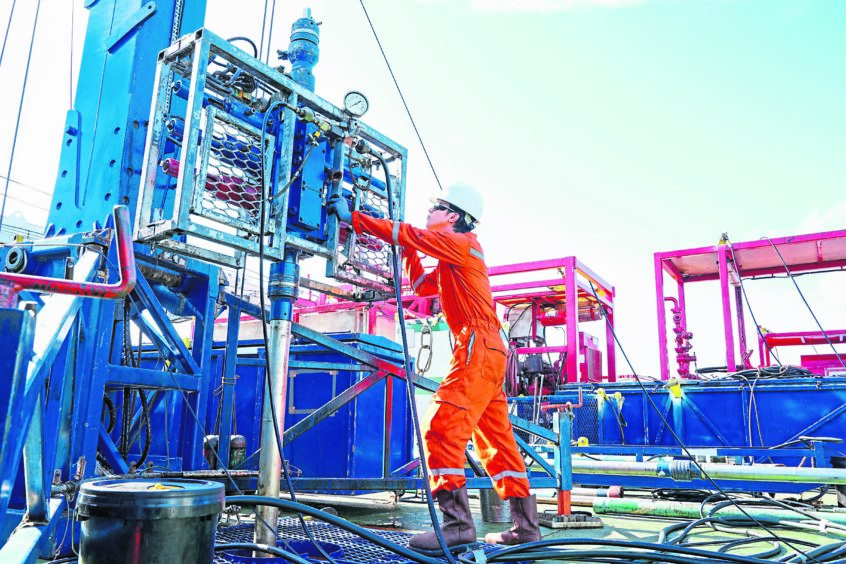
For oil and gas workers looking to increase wages or change their employment package, “now would be the time to look around”, says Airswift’s James Allen.
The Global Energy Talent Index (GETI), published by Airswift last week, found that competition is growing in the oil and gas jobs market with almost a third of oil and gas workers having been headhunted over six times in the past year.
Mr Allen, president of EMEA-CIS for Airswift, told energy Voice: “The report is clear, it’s the employee’s marketplace, the employees have the power at the moment.
“If you’re unsatisfied, you don’t feel like you’re getting what you’re worth, or what you should be paid now, then now would be the time to look around and find something else.
“There are lots of opportunities out there and people are hiring.”
Airswift found that 44% of oil and gas workers saw their pay increase last year and two-thirds expect further salary rises next year since the majors started posting record profits.
A further 41% expect bumper pay rises of over five per cent next year, optimistic estimates predict.
This increase in payment is driving job satisfaction, the index claims, 69% of oil and gas workers were said to be happy with their current positions.
However, this doesn’t seem to line up with the news of growing unrest in the UK North Sea as over 1,000 workers were balloted over strike action on Friday.
Mr Allen explained that the index takes into account the global energy workforce which equates to hundreds of thousands of people.
Therefore the likes of mass balloting over strike action on a handful of platforms in the North Sea with workers being unsatisfied would not show up heavily in the final findings.
He said: “Union action wasn’t something we covered in particular, it’s not something that we asked about or surveyed as part of the survey.”
Mr Allen added: “1,000 people out of a global workforce of hundreds and thousands, it’s hard to pinpoint exactly what’s gone on with that group of people on those particular platforms in the North Sea.”
Changing attitudes
It’s not just employment opportunities and pay rises that the Airswift research found that is changing in the energy workforce.
People are becoming more environmentally conscious and want to know that their employer is looking to transition to cleaner energies in a timely manner.
Mr Allen said: “Outside of pay optimism, what’s becoming more and more important to workers is the interest in what companies are doing to make the transition to new, future, and alternative energies.”
Oil and gas workers want to see the firms they work for are taking net zero targets seriously and that the environment is something that the company they work for is taking into consideration.
However, despite traditional hydrocarbon companies making strides in the renewables space, for many workers firms are not picking up renewables “at the pace that they’re hoping for or anticipating”, Mr Allen points out.
The Airswift president of EMEA-CIS warns that this is “one area where you probably could lose people” because the personal beliefs of employees will need to line up with the direction of the firm they work for.
“All these companies are making good statements and putting good plans out, long-term plans, about where they want to be but we want to see more.”
Mr Allen believes that the desire to be part of the clean energy solution is so strong for some employees that they are questioning potential employers in job interviews about the firm’s plan for net zero.
In the Airswift employee’s opinion, the ‘us versus them’ opinion that may have been held between hydrocarbon employees and those working in renewables is gone.
“because we’ve seen all the majors either acquire renewables and alternative energy companies or they’re doing it themselves and they’re all doing it now.”
The energy industry is full of engineers and by nature, those people are problem solvers according to Mr Allen “they are the right people to make those changes happen.
“These are the people who have done impossible things and made impossible things happen throughout the history of the energy industry.
“Just having those people focusing on those problems is one thing, but you need money and you need government support. It’s pretty much accepted that all of the technology is there to get us to carbon neutral, time is the thing we need to compress.
“So the work of engineers is, ‘how do we do this in a profitable way?’”
Recommended for you

 © Supplied by Airswift
© Supplied by Airswift